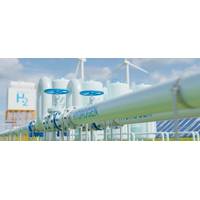Low Crude Prices dim Revenue Hopes from new Ghana oilfield
New oil production ship cost $1.6 billion. Some analysts say output from Jubilee field disappointing, but Tullow confident new ship avoids problems on Jubilee vessel.
In the depths of Ghana's fiscal crisis in 2014 policymakers looked forward to a time when a new oil field would open to boost the economy. That time has come but there's a catch: oil prices have halved since the project started.
The drop in the crude price to under $50 a barrel reduces the short-term boost to government revenue from the offshore Tweneboa-Enyenra-Ntomme (TEN) field at a moment of triumph for Tullow and its partners, who include Ghana National Petroleum Corporation (GNPC).
TEN should ramp up production to around 50,000 barrels per day within weeks of coming on stream by the end of August.
"There is no way that, even with the new money from TEN, revenue in 2016 will hit what it was two years ago, unless something extraordinary happens with the oil price," said Benjamin Boakye of the Africa Centre for Energy Policy.
Ghana, which also produces cocoa and gold, is following an International Monetary Fund programme to restore fiscal balance and spur growth, which dropped to 3.9 percent in 2015 from 14.4 percent in 2011, a year after it began producing oil.
On Monday, the government said it had cut its forecast for 2016 GDP growth to 4.1 percent from a previous forecast of 5.4 percent due to lower export prices and irregular oil production.
Oil output was halted between March and May at the offshore Jubilee field due to a breakdown on a production ship, and the country lost millions of dollars in revenue.
It has since restarted and is currently producing around 50,000 barrels per day, far lower than the 120,000 bpd capacity, according to Alex Mould, chief executive of GNPC.
Oil holds a special place for the country because optimism about the prospects for rapid economic progress soared when crude began to flow from its offshore Jubilee field in 2010.
But government figures show that revenue from Jubilee fell from $978 million in 2014 to $396 million the following year due to falling oil prices, forcing the government to revise its budget.
The hope is that TEN and the Offshore Cape Three Points field operated by Italy's ENI, which is due to come onstream next year, will help offset the shortfall from Jubilee.
HEART OF THE PROJECT
The deepwater TEN project should weather the low oil prices as a commercial proposition because its production costs are at $20 a barrel and its oil quality is high. In addition, it has a lifespan of more than 20 years.
"What will stop us achieving that (start) is if we come across any unplanned events. So far the plan is telling us that we are good within that (end of August) window," said Tony Oldfield, a senior official with the TEN project.
At the heart of the deepwater project is a $1.6-billion Floating Production, Storage and Offloading vessel, the Prof John Evans Atta Mills, named after Ghana's late president who died in 2012.
The ship was converted from a super-taker at a shipyard in Singapore. It stands over 350 metres long, towering over other vessels in the Gulf of Guinea south of the port city of Takoradi.
Project managers say its 4,500-tonne turret, which connects the vessel to the sea floor and prevents it from rotating, can avoid the problems that crippled Jubilee earlier this year.
For a start, the TEN bearing is in segments, making it easier to repair than the older Kwame Nkrumah ship that operates in the Jubilee field. In addition, the turret has an automatic greasing system, which will facilitate maintenance.
"The Atta Mills is a much better design," Mould said.
By Matthew Mpoke Bigg



